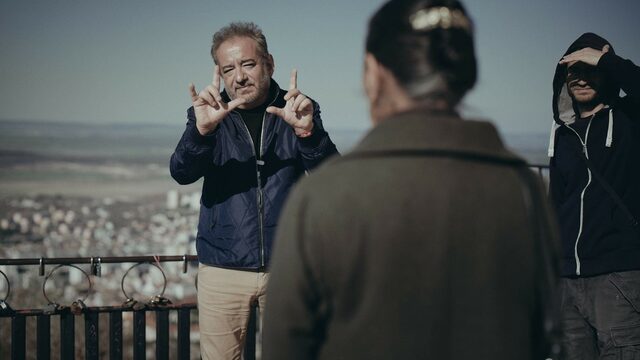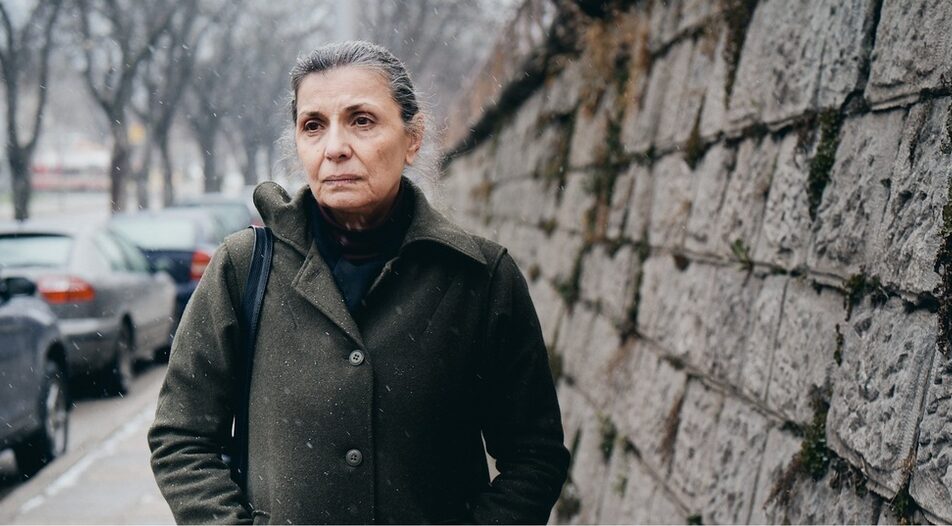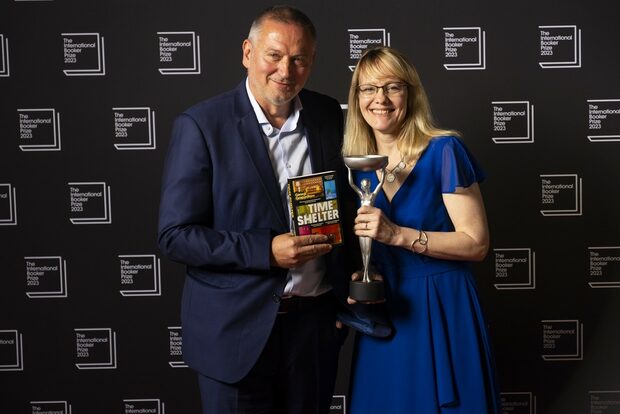"I wanted to make a film about my parents' generation and what happened to them during this long transition to the so-called free market economy," says director Stephan Komandarev of his latest deep dive into Bulgarian reality - the drama "Blaga's Lessons", which scored one of the biggest successes in Bulgarian cinema last Saturday, taking three awards at the 57th edition of the Karlovy Vary Film Festival in Czechia.
The film won the grand prize of the forum, the Crystal Globe, as well as the prize for best actress, which was received by Eli Skorcheva, and the award of the ecumenical jury for high artistic qualities, which Bulgaria has won for the second year in a row (at last year's edition it went to the documentary "A Provincial Hospital" by Ilian Metev, Ivan Chertov and Zlatina Teneva).
Eli Skorcheva's big comeback
"Blaga's Lessons", which is a Bulgarian-German co-production like most of Mr Komandarev's movies, received glowing reviews at its premiere. The Hollywood Reporter compared Eli Skorcheva's performance to the luminous presence of legendary actresses such as Ingrid Bergman and Simone Signoret, describing the film as a "harrowing drama," while Variety called the film more of a "social thriller".
Skorcheva's presence is, in fact, one of the biggest surprises about the whole project. She plays Blaga, a retired teacher who lives alone after her husband's death until one day she falls victim to a phone scam, losing her entire savings .- a situation that has sadly befallen many Bulgarian pensioners thanks to a moment of panic and gullibility.
Ms Skorcheva's acceptance of the role and her winning the prize are equally surprising. This is her first film part in over three decades. She stepped away from cinema after Ivan Andonov's 1992 "Vampires, Ghouls," and according to Mr Komandarev, this hiatus was entirely deliberate, as she did not want to compromise her work: "And it shows now. She has an incredible freshness. She hasn't worn herself out with compromising roles, and perhaps this hiatus has preserved some of her very special qualities. Getting to shoot with her was an amazing experience."

She returned to filmmaking after a completely chance encounter ("insofar as there are chance things") with Alexander Kossev, Mr Komandarev's casting director, when the two were walking their dogs and Mr Kossev asked her if she would ever act again. She told him she would only do so if a truly decent script fell into her hands. "We sent her the script the same day, and she took to the character immensely. In the process, she gave her all without any hesitation."
Despite the positive reviews and 10-minute standing ovation, the director and his team headed to Leipzig to shoot their next project, Made in EU, a film about Bulgarian textile factories that mass produce clothes for Western brands. "At one point the festival director called and said it was okay to come back to Karlovy Vary. We found out that there would be an award for Skorcheva, and something else, 'not very little'. When the award came from the jury, we thought that was it, and we were absolutely surprised when they handed us the Crystal Globe," Mr Komandarev told Capital weekly.
Why our problems are most visible outside Sofia
"Blaga's Lessons" was filmed almost entirely in Shumen, with a small part of the story set in Ruse. "After my last two films I wanted to get out of Sofia. The themes we talk about are much more visible outside the capital. And Shumen is an incredibly cinematic city - there's an old part, a socialist part, an unfinished socialist part that literally sticks out in the center, and there's the monument above the city that comes in as an extra line of meaning in the story," the director says.
In Shumen, the team found unexpected supporters. For example, the Shumen Symphony Orchestra, the oldest symphony orchestra in Bulgaria, entered the frame, and the conductor Kalina Vassileva composed the soundtrack.
From meetings with the audience and discussions in the Czech Republic, Komandarev has noticed that most questions come from viewers from Western Europe and the USA. In a conversation during the festival, British actor Barry Ward, a member of the jury, found parallels between the film and the highly socially engaged cinema of directors such as Ken Loach, with whom he has worked. "As it always turns out, our issues and problems are not unique to our environment, but are part of global processes that are simply more visible here than elsewhere."
After the success in Karlovy Vary, "Blaga's Lessons" will have several more festival appearances in Europe and Asia. The film will have its first screening in Bulgaria.
"I wanted to make a film about my parents' generation and what happened to them during this long transition to the so-called free market economy," says director Stephan Komandarev of his latest deep dive into Bulgarian reality - the drama "Blaga's Lessons", which scored one of the biggest successes in Bulgarian cinema last Saturday, taking three awards at the 57th edition of the Karlovy Vary Film Festival in Czechia.
The film won the grand prize of the forum, the Crystal Globe, as well as the prize for best actress, which was received by Eli Skorcheva, and the award of the ecumenical jury for high artistic qualities, which Bulgaria has won for the second year in a row (at last year's edition it went to the documentary "A Provincial Hospital" by Ilian Metev, Ivan Chertov and Zlatina Teneva).












